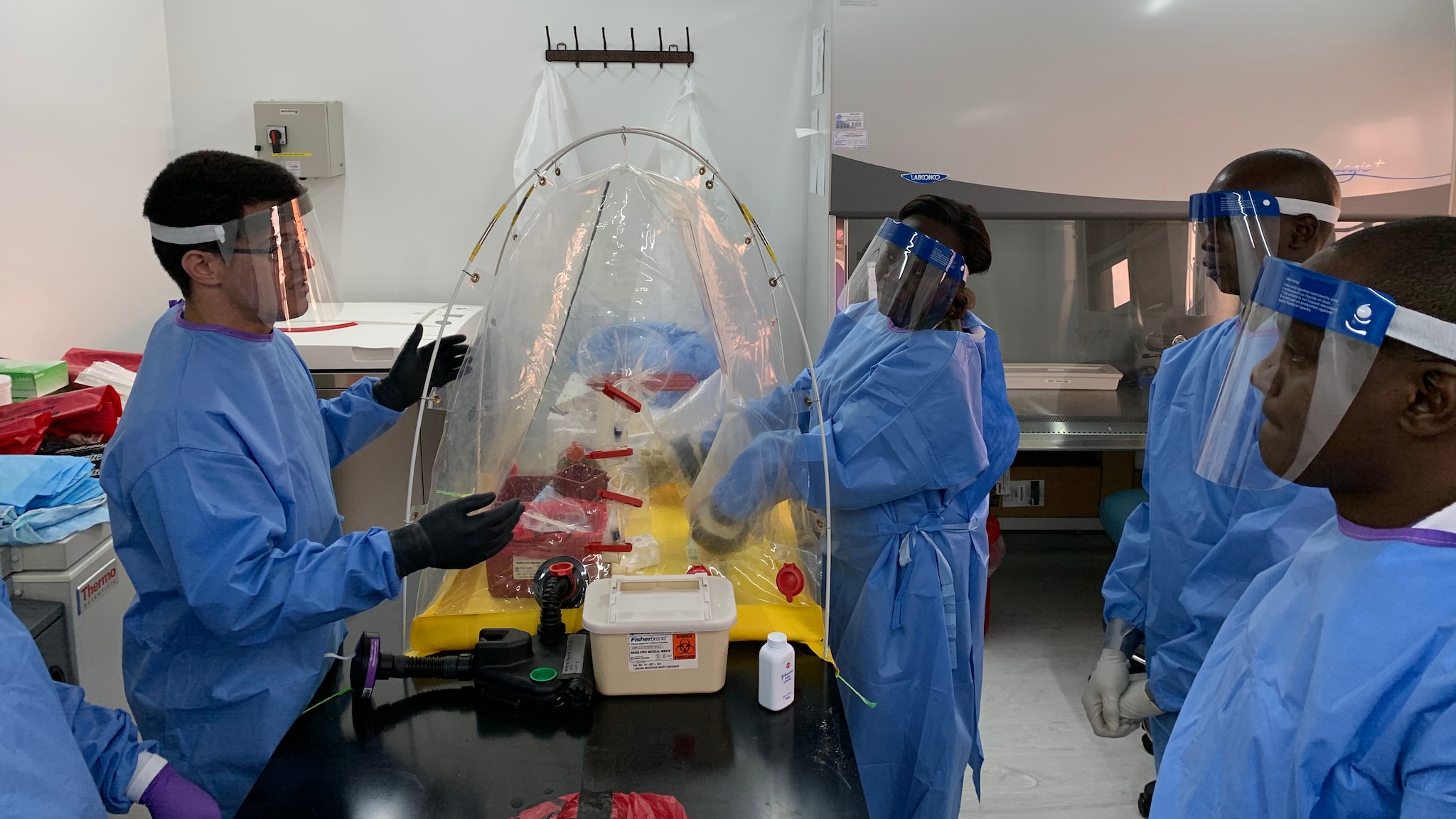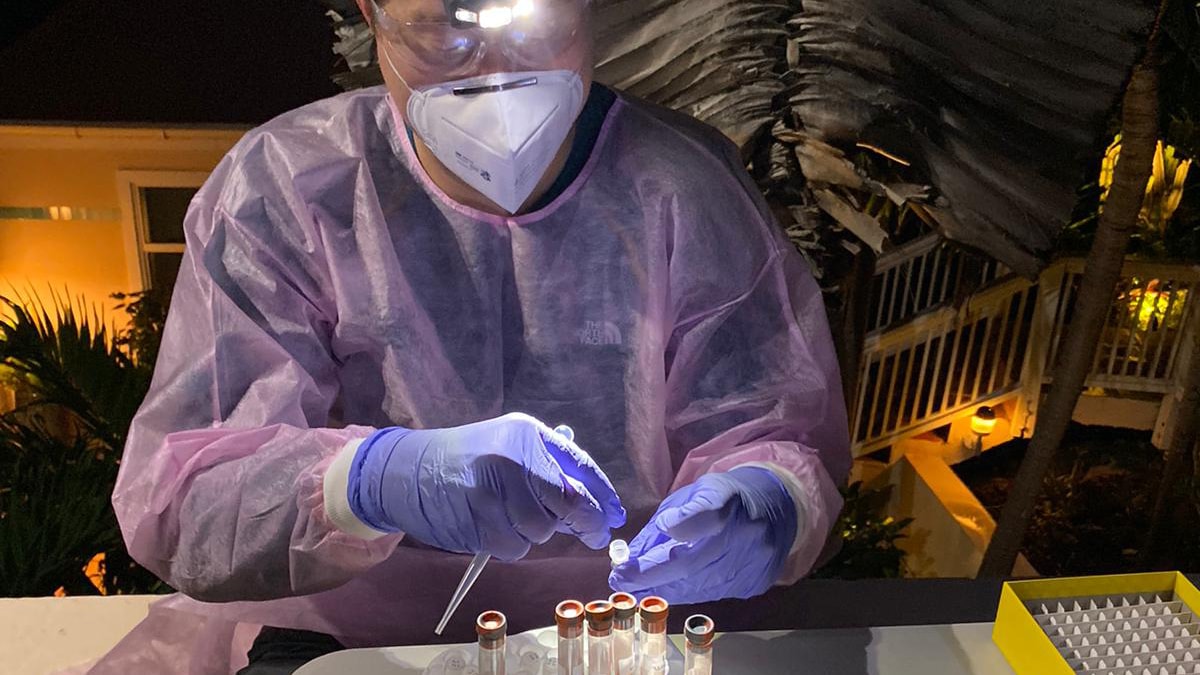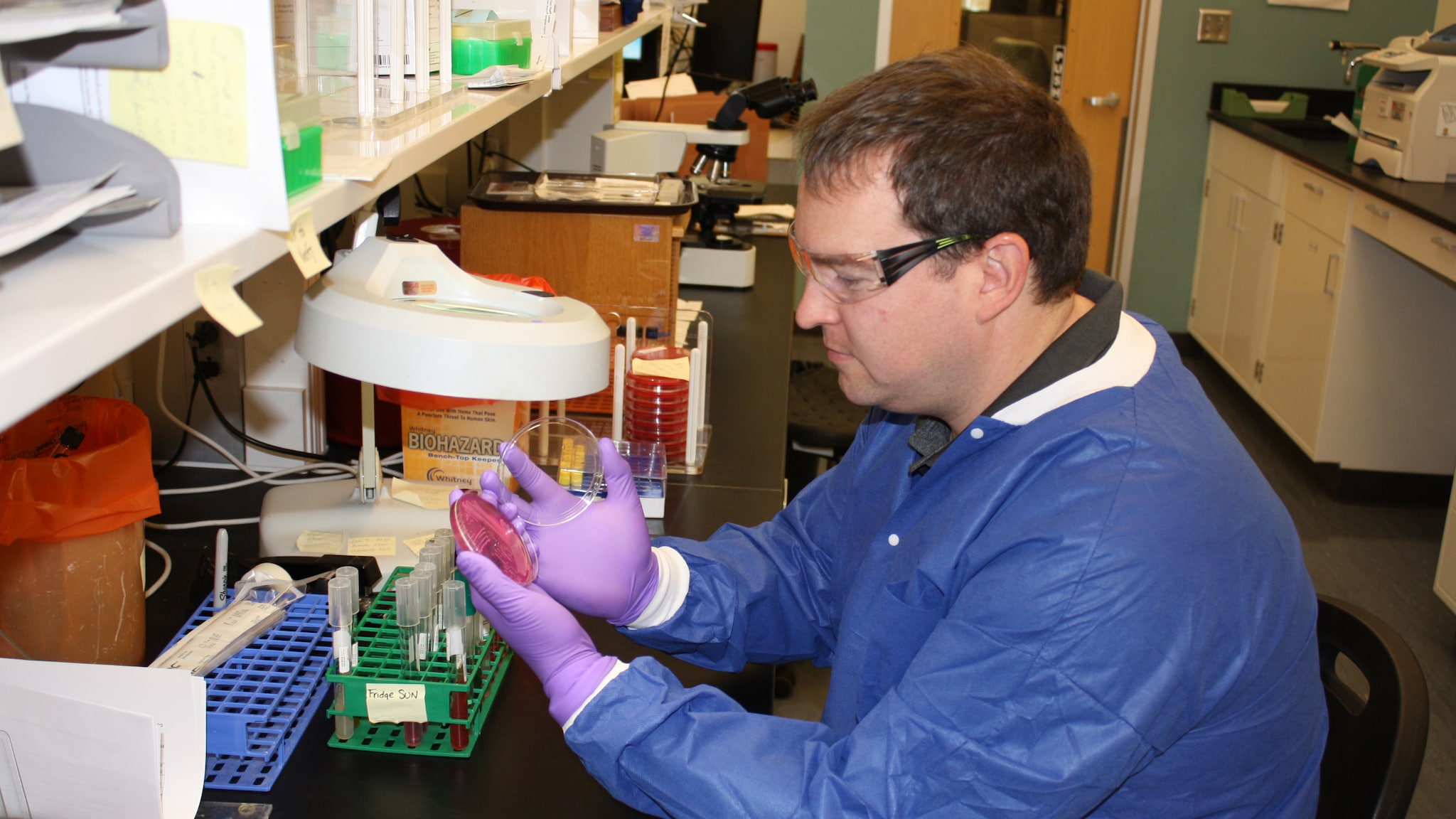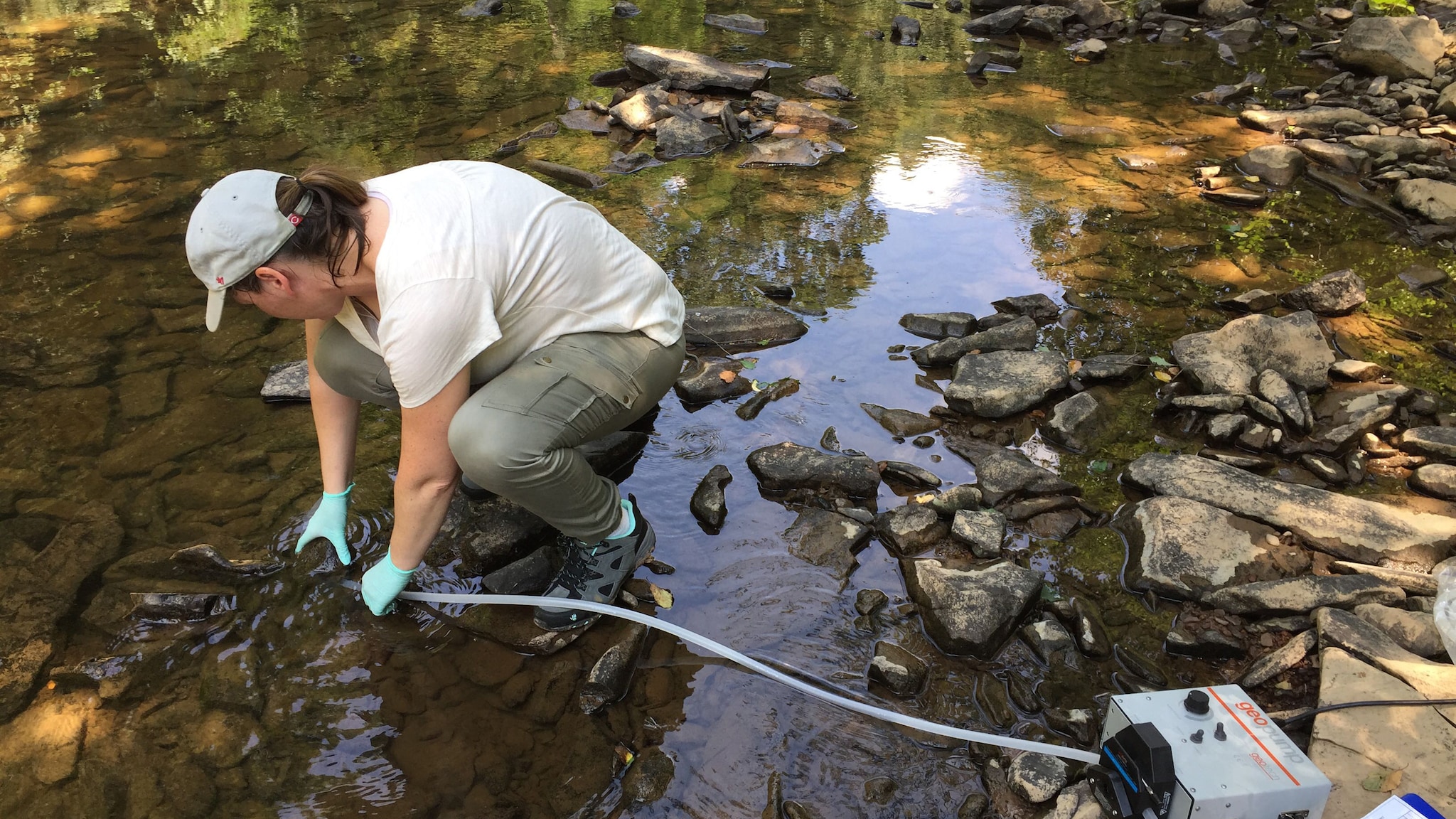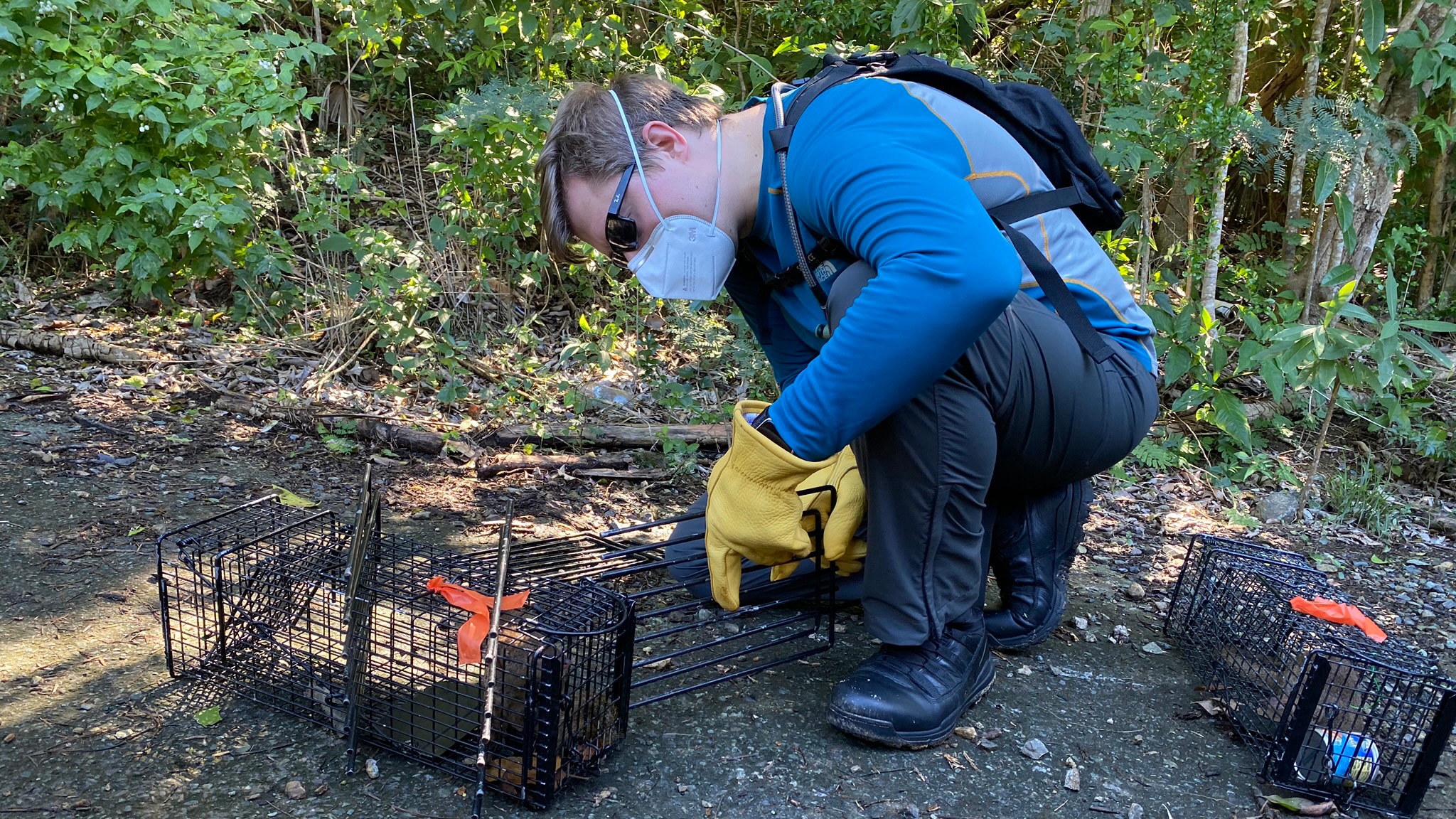
How LLS Fellows Serve
LLS training is largely hands-on and experiential. Fellows perform assignments primarily within their host laboratories but they also serve the agency and other public health labs by supporting outbreak investigations, leading Lab-Aids, supporting EIS officers on Epi-Aids, or providing laboratory expertise for large-scale public health responses.
LLS fellows provide on-the-job service to CDC, state or local public health laboratories, as assigned. Fellows actively support the mission objectives of their host labs on a daily basis through hands-on service. This may involve making applied research contributions, conducting risk assessments, supporting laboratory operations, or participating in other routine, high-performance activities.
Examples of fellows’ on-the-job service include:
- Developing quality management system materials for the population-based HIV impact assessment in Zambia
- Creating laboratorian competency assessment procedures for inactivating pox and rabies viruses
- Training laboratory scientists on antifungal susceptibility testing and building global laboratory capacity to detect drug-resistant fungal infections.
- Providing technical assistance to the World Health Organization for the development of global guidance on laboratory biosafety and biosecurity
- Designing and overseeing the implementation of new laboratory facilities and operations in New York City to provide rapid, point-of-care testing for STDs (the Chelsea Express “Quickie Lab”)
- Conducting cutting-edge applied public health laboratory research, such as developing new bioinformatics tools to investigate bacterial meningitis outbreaks or investigating the spread of hard-to-treat, antibiotic-resistant bacteria
- Developing audit procedures and tools to assess a public health laboratory’s compliance with diagnostic testing regulations
- Leading the laboratory component of a Legionella outbreak investigation on behalf of the fellow’s state public health lab
- Investigating occupational health hazards, such as chemical exposure and particulate inhalation risks, of nail salon workers and exposures during acrylic manicures
- Responding to emerging public health threats, like Zika virus, measles, COVID-19, and monkeypox
LLS fellows and EIS officers frequently collaborate on field investigations and outbreak responses. Whenever possible, the LLS and EIS programs combine the laboratory and epidemiologic expertise of their fellows so these disease detectives can apply a comprehensive approach to complex public health issues.
LLS fellows often have the opportunity to lead a Lab-Aid. A Lab-Aid is a mechanism for providing rapid, short-term support to state, local, and federal public health labs for critical laboratory testing or operational needs. During a Lab-Aid, an LLS fellow assumes a leadership role, supported by a CDC subject matter expert, to address an urgent public health concern.
A Lab-Aid may involve:
- Conducting lab safety risk assessments
- Advising on lab quality issues or systems to help improve the reliability and reproducibility of lab data
- Standing up or strengthening the lab component of a surveillance program
- Assisting with bioinformatics or advanced molecular detection (AMD) workflows or analyses
- Providing lab expertise or assistance for outbreak investigations
- Building capacity or providing laboratory operations support
Examples of fellows collaborating on “joint” Lab-Aids or Epi-Aids include:
- Providing laboratory field sampling support for a norovirus outbreak
- Investigating the spread of adenovirus among outpatients of a substance abuse treatment center
- Building laboratory-based surveillance for blood lead testing in the U.S. Virgin Islands
- Determining the source of Burkholderia psuedomallei contamination in freshwater aquarium animals and plants
- Enhancing Nebraska’s public health surveillance systems to detect the Raccoon Rabies Virus variant
- Providing critical laboratory support for patient testing and diagnosis during a leptospirosis outbreak in the U.S. Virgin Islands
- Providing onsite sampling and testing for Escherichia coli contamination at chicken farms identified as the source of an outbreak
- Assessing self-reported health, barriers to housing, and encampment-related health hazards of the unhoused population in Denver, Colorado
Specific examples include:
- Providing training on rabies diagnostic assays to partners in the New York City Public Health Laboratory
- Helping partners in the New York City, Hawaii and California Departments of Health onboard new assays to detect Legionella
- Outbreak investigation, response, specimen management, training, and laboratory risk assessments for anthrax surveillance in Indonesia
- Providing capacity building support to public health labs in Puerto Rico and the U.S. Virgin Islands after hurricane damage destroyed their facilities
- Optimizing public health laboratories’ quality management systems and infrastructure
- Assessing and improving the Maine Health and Environmental Testing Laboratory Safety Program
LLS fellows provide service to CDC, supporting large-scale responses to protect public health. LLS fellows are key responders during large-scale public health responses. Their unique training and expertise ishighly valued and sought. LLS fellows demonstrate their commitment to public health through field deployments, service to state and local laboratory jurisdictions, and support for CDC’s laboratories and Emergency Operations Center (EOC). Some of the ways LLS fellows have supported large-scale public health responses include:
- During the Ebola response, LLS fellows provided support to international ministries of health for laboratory operations and logistics support for specimen handling
- During the Zika response, an LLS fellow partnered with public health officials in Columbia to streamline laboratory operations by developing and implementing streamlined sample processing and tracking systems
- LLS fellows were the first CDC mpox deployers in the field and served in critical agency leadership roles during the response
- LLS fellows partnered with health officials in Ghana to support the global polio eradication efforts
- During the COVID-19 response, the LLS program shifted the focus of all LLS fellows’ training and service activities to fully support CDC’s response efforts to stop the spread of the virus. Fellows deployed directly to state and local public health labs to provide technical and operational support, while others deployed with epidemiologists to help facilitate patient contact tracing. Several fellows deployed to quarantine areas and stations to support specimen handling, tracking, and testing logistics, while other fellows remained at CDC to provide technical expertise for reference testing or assume leadership and response coordination roles in the agency’s Emergency Operation Center (EOC).
LLS fellows are integral members of the CDC workforce, assigned to public health laboratories across state, territorial, local, and tribal jurisdictions. Additionally, some fellows are assigned to CDC laboratories in Atlanta and other cities. Assignments are determined for each year’s incoming class according to the best possible match between a fellow’s education, skills, and experience and the host laboratory’s needs. To see where current fellows are assigned, please visit the Meet Current and Past Fellows web page, and click on the buttons to view each class.
